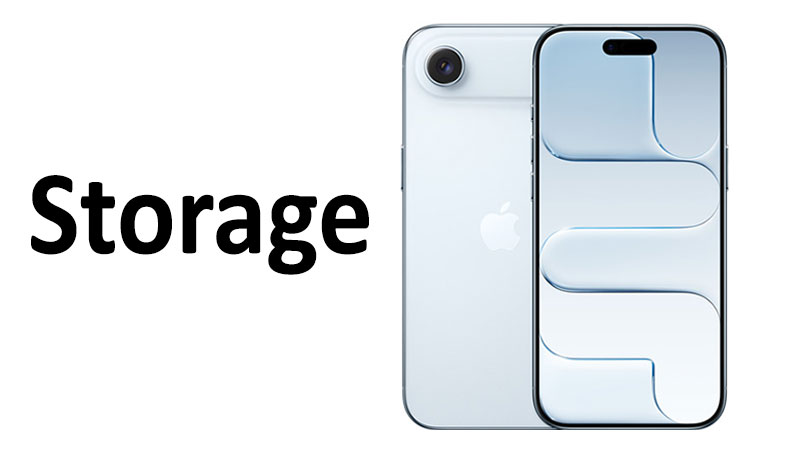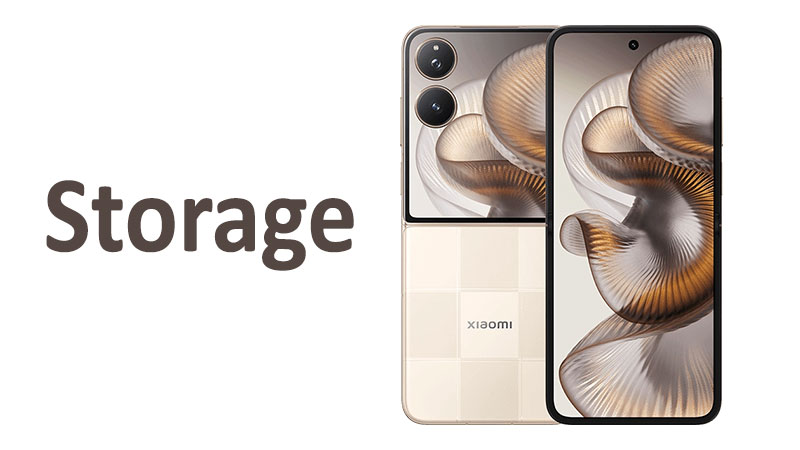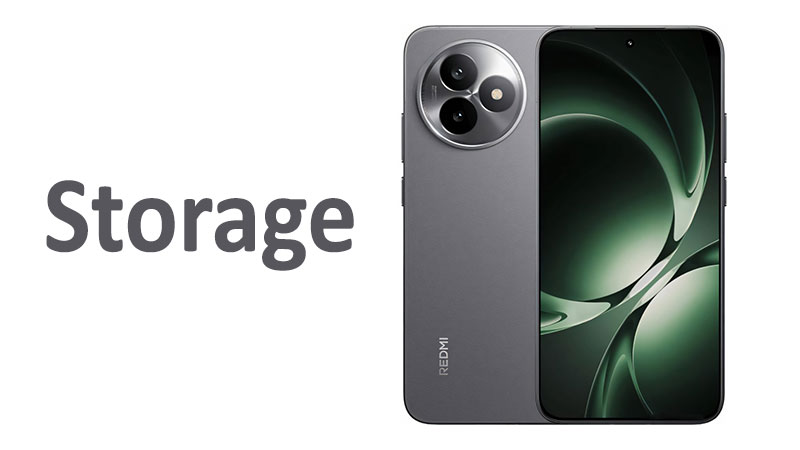The Apple iPhone Air represents a significant leap in mobile technology. It introduces an ultra-thin design and a powerful A19 Pro chipset. This premium device also offers substantial storage options. This guide will explore the iPhone Air’s storage capacity, type, and how to choose the right amount for your needs.
Understanding your storage requirements is crucial. It ensures your iPhone performs optimally without the constant worry of running out of space. A full storage drive can slow down your phone. It can also prevent you from capturing life’s moments. So, let’s dive into the details of Apple iPhone Air storage.
iPhone Air Storage: Capacity and Type
The iPhone Air moves away from the traditional 128GB base model. Instead, it starts with a generous 256GB of storage. This provides ample room for most users. Apple also offers two additional storage configurations. These are a 512GB and a 1TB option. This expanded range caters to a broader audience. It includes professionals and content creators.
The storage type in the iPhone Air is NVMe storage. This is a high-speed flash memory. It provides faster read and write speeds. This technology improves performance significantly. It helps with app loading, file transfers, and system responsiveness. The iPhone Air also features 12GB of LPDDR5X RAM. This works with the NVMe storage for seamless multitasking.
Specialized Comparisons
Compared to the previous generation, the iPhone Air’s storage is a notable upgrade. The iPhone 16 series had a base storage of 128GB. The iPhone Air’s 256GB starting point is double that. This makes the base model much more useful. It reduces the need for many users to upgrade. It also compares favorably to the iPhone 17. The iPhone 17 also starts at 256GB. However, the iPhone Air offers a 1TB option, while the iPhone 17 tops out at 512GB.
The iPhone Air’s storage options compete well with other flagships. Many high-end Android phones offer similar configurations. However, Apple’s seamless integration of hardware and software sets it apart. This ensures that the storage and RAM work together efficiently.
Pros and Cons
Pros:
- Higher Base Storage: The 256GB starting capacity is a significant pro. It provides more room for apps, photos, and videos. This is great news for most consumers.
- Expanded Options: The 1TB option caters to power users. It is perfect for those who store large files.
- Faster Performance: NVMe storage provides impressive speeds. This translates to a snappy and responsive user experience.
- Future-Proof: The large storage options prepare the device for future software updates. It also handles higher-resolution media formats.
Cons:
- No MicroSD Card Slot: Apple phones still lack expandable storage. You must choose your storage amount carefully when you buy the phone.
- Higher Price: Upgrading to the 512GB or 1TB model is expensive. This can make the already premium device even more costly.
- No 2TB Option: Unlike the iPhone 17 Pro Max, the iPhone Air doesn’t have a 2TB option. This may disappoint some professional users.
Important Points for a Buyer
Consider your personal usage habits. Do you take a lot of photos and videos? Are you a mobile gamer? Do you download many movies or music for offline use? Your answers will help you decide.
The 256GB model is perfect for most people. It’s enough for a large photo library and many apps. The 512GB model is a great middle ground. It’s for users who need more space but don’t require the maximum. The 1TB option is for professionals. It is also ideal for enthusiasts. This includes those who shoot 4K video or work with large media files.
Remember that iCloud storage is different from your device’s internal storage. It is a cloud-based service. You can use it to offload some files. However, it requires a monthly subscription. It also requires an internet connection to access your files.
Choosing the Right Storage for You
Making the right choice depends on your digital lifestyle. Think about what you do with your phone. Let’s break down the decision based on different user types.
The Everyday User: 256GB is Enough
Are you a casual user? Do you browse the web and use social media? Do you take photos and videos for personal use? The 256GB model is likely your best option. It offers more than enough space for your needs. This choice also saves you money. You can use those savings for accessories.
The Power User: 512GB is the Sweet Spot
Do you enjoy mobile gaming? Maybe you store a lot of media, including movies and high-quality music. Or perhaps you frequently download large files. The 512GB model is a wise investment. It gives you room to grow without feeling restricted. It’s a balance between cost and capacity. This option is great for anyone who feels the 256GB model might be too small over time.
The Professional: 1TB is a Must-Have
Are you a vlogger, photographer, or filmmaker? Do you record in 4K resolution? Do you work with large app projects or raw photo files? You should choose the 1TB model. The large capacity is essential for your work. It allows you to store and edit large files on the go. This is an investment in your productivity.
Conclusion
The Apple iPhone Air storage options are a significant improvement. The starting capacity of 256GB is a welcome change. This makes the base model a solid choice for the average consumer. The availability of 512GB and 1TB models caters to specific needs. These include power users and creative professionals.
Choosing the right storage is a personal decision. Evaluate your current usage. Think about your future needs. The iPhone Air’s NVMe storage offers fantastic performance. This makes any storage choice a good one. However, selecting the right capacity ensures a frustration-free experience. Pick the model that fits your digital life. You can then enjoy the power of the iPhone Air.
FAQ
What is the difference between device storage and iCloud storage?
Device storage is the physical space on your iPhone. It is where your apps, photos, and files are stored. iCloud storage is a cloud-based service. It backs up your data online.
Can I expand my iPhone Air storage with an SD card?
No. The iPhone Air does not have a microSD card slot. This means you cannot expand the internal storage. You should choose the right capacity when you buy the phone.
What are the available storage options for the iPhone Air?
The iPhone Air comes in three storage capacities. These are 256GB, 512GB, and 1TB.
Is 256GB enough for most users?
Yes, 256GB is enough for most users. It provides ample space for a large number of apps, photos, and videos. It is a significant upgrade from the previous 128GB base models.
Does the type of storage affect phone performance?
Yes. The iPhone Air uses NVMe storage. This is a very fast type of flash memory. It improves app launch times and file transfer speeds. This contributes to the overall responsiveness of the device.



